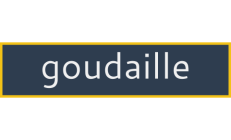- USA
The Dangers of Black Hat SEO: Its Potential to Devastate Your Website's Domain Authority
Search engine optimization (SEO) is crucial in the dynamic field of digital marketing since it directly influences a website's exposure and overall performance. Implementing ethical SEO strategies may significantly enhance your website's performance. However, employing black hat SEO methods can result in severe repercussions, particularly in terms of your website's Domain Authority (DA).
Analyzing Black Hat SEO:
Malicious hacker SEO involves employing various strategies to alter search engine algorithms in order to achieve rapid improvements. These techniques frequently breach search engine standards and can lead to significant fines.
Duplication of content and plagiarism:
A prevalent black hat strategy involves plagiarizing information from other websites, resulting in problems with duplicating content. Search engines give higher importance to original and useful information, and the inclusion of plagiarized material can negatively impact the trustworthiness of your website.
Excessive use of keywords:
Black hat practitioners may employ the tactic of keyword stuffing, which involves the excessive inclusion of terms in material, with the aim of manipulating search engine results. Not only does this diminish the user experience, but it also triggers concerns for search engines.
Camouflaging:
Cloaking is the practice of displaying distinct content or URLs to search engines and users. Although this may provide a temporary increase in results, search engines possess the ability to detect such tactics, leading to penalties and a decrease in Domain Authority (DA).
Link farming refers to the practice of creating a large number of low-quality or irrelevant links to a website in order to manipulate search engine rankings.
Constructing connections is a valid SEO tactic, but, unethical practitioners frequently employ link farming, which involves establishing networks of substandard and unrelated links in order to artificially enhance a website's link profile. Detection of this can result in a substantial decrease in DA.
Monetized Hyperlinks and the Purchase of Links:
Acquiring links by payment is a breach of search engine regulations. Search engines might impose penalties on your site and diminish its authority and trustworthiness when they detect bought links.
Concealed content and hyperlinks:
Malicious hacker SEO may encompass the practice of concealing content or links inside a webpage, rendering them perceptible just to search engines. Engaging in this deceitful conduct might result in penalties and tarnish the reputation of your website.
Instances of Negative SEO Attacks:
Rival companies or malevolent entities may partake in negative SEO, utilizing unethical strategies to detrimentally impact the ranks of your website. It is of utmost importance to identify and reduce the impact of these assaults in order to protect your DA.
In conclusion:
Ultimately, engaging in black hat SEO is a risky endeavor that is destined for failure. Search engines are getting increasingly adept at identifying manipulative methods, and the consequences for employing black hat techniques can be severe, such as a substantial decrease in your website's Domain Authority.
Adopting ethical, white hat SEO tactics not only minimizes risks but also guarantees long-term and sustainable progress for your website. Safeguard your digital visibility, standing, and Domain Authority by following SEO guidelines and delivering valuable content to your target audience.

